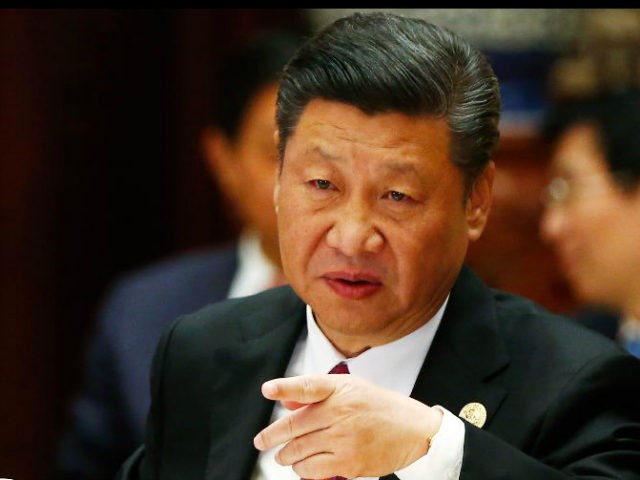Several sources close to the Chinese government said an escalating trade war with the United States is creating serious divisions in Beijing, all the way up to the office of the seemingly unassailable President Xi Jinping, according to a Reuters report Thursday.
The gist of the Reuters piece is that some Chinese officials and influential academics think Xi is running an excessively “nationalistic” economic policy and overestimating China’s strength to maintain his political support. Sources in China described a feeling of surprise that U.S. trade actions are hitting the Chinese economy much harder than Xi said they would. These critics blame Xi for provoking the U.S. to embark on a confrontational strategy that China was not truly prepared for.
This lightning bolt of criticism is thus far grounding itself in Xi’s top strategist Wang Huning, who is taking the heat for policy errors because unhappy legislators are not quite ready to take their chances on criticizing Xi himself:
Wang, who was the architect of the “China Dream”, Xi’s vision for China to become a strong and prosperous nation, has been taken to task by the Chinese leader for crafting an excessively nationalistic image for the country, which has only provoked the United States, the sources said.
“He’s in trouble for mishandling the propaganda and hyping up China too much,” said one of the sources, who has ties to China’s leadership and propaganda system.
The office of the party’s spokesman did not respond to a request for comment on Wang and his relationship with Xi, or on whether China had erred in its messaging in the trade war.
There is a growing feeling within the Chinese government that the outlook for China has “become grim”, according to a government policy advisor, following the deterioration in relations between China and the United States over trade. The adviser requested anonymity.
Those feelings are also shared by other influential voices.
“Many economists and intellectuals are upset about China’s trade war policies,” an academic at a Chinese policy think tank told Reuters, speaking on condition of anonymity due to the sensitivity of the issue. “The overarching view is that China’s current stance has been too hard-line and the leadership has clearly misjudged the situation.”
Also soaking up some criticism is prominent Tsinghua University economics professor Hu Angang, who has been blamed for “making the United States wary of China by trumpeting and exaggerating its relative economic, technical and military might.”
According to Reuters sources, some “people in official circles” are beginning to talk about Hu as the policy guru who miscalculated and set a disastrous course for Chinese conflict with the United States. That probably isn’t a good omen for Professor Hu’s career prospects.
The question of how much trouble this will cause Xi remains open. The Chinese government is very good at designating scapegoats and using its tight control of public discourse to minimize the damage from bad decisions.
As Reuters notes, the ugly scandal swirling around faulty vaccines is already straining public trust in the government and taxing censorship resources to the limit. Chinese regulators began recalling defective vaccines from overseas on Tuesday, which makes it very difficult for Xi’s propaganda machine to pretend the vaccine scandal is a controlled issue without major ramifications for China’s ambition to become a top global pharmaceutical player.
Also, either because of China’s economic troubles and vaccine scandal or coincident with them, top government officials have effectively vanished from the public stage as they reportedly gather for a secret meeting. This is hardly an opportune moment for China’s leadership to go dark, but if they canceled the meeting it would make them look desperate.
CNBC reported on Wednesday that pressure from the trade war might be pushing Beijing to speed up structural economic reforms in “areas such as state-owned enterprises, taxation, and income and wealth distribution.”
“State-owned enterprises hold a large portion of Chinese assets, but tend to be inefficient, debt-ridden and heavily concentrated in the manufacturing industries on which Beijing is trying to reduce economic reliance,” CNBC noted.
The report went on to observe that Beijing might not be able to speed up these reforms as much as necessary without risking some of the political control Xi values so much. It would also be very difficult to accelerate structural reforms without admitting that the original structure was much weaker than Xi and his propaganda machine claimed.

COMMENTS
Please let us know if you're having issues with commenting.